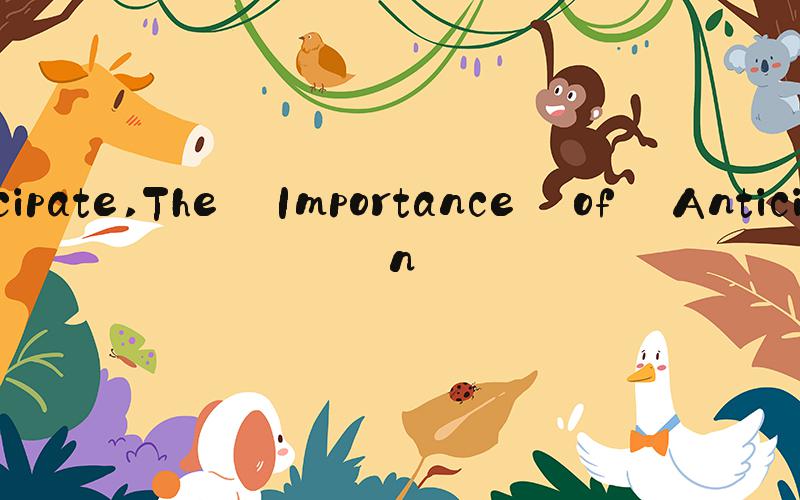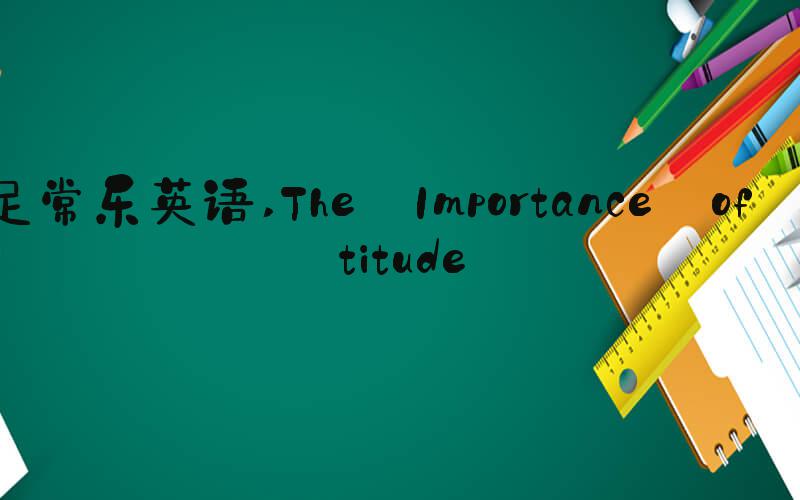
What Does It Mean to Anticipate?
Anticipating is a common human behavior that involves predicting or expecting something to happen in the future. It can be driven by a variety of factors, including our past experiences, beliefs, and knowledge. When we anticipate, we are essentially mentally preparing ourselves for an event or situation that we expect to occur. Like many human behaviors, anticipation can have both positive and negative effects, depending on how it is utilized.
The Importance of Anticipation
Anticipation is an important aspect of our lives, as it allows us to plan ahead and adapt to future circumstances. For example, if you know that it is going to rain, you can plan to bring an umbrella. If you anticipate that you are going to have a busy day at work, you can plan your schedule accordingly to manage your time better. Anticipation also helps us avoid potential risks and challenges, as we can prepare for them in advance.
Anticipation also plays a critical role in decision-making by enabling us to evaluate the potential outcomes of a particular action or situation. With anticipation, we can weigh the pros and cons of a decision and make informed choices based on our expectations of the future. Anticipation can also help us manage our emotions and reactions to events, as we are better able to control our responses when we have mentally prepared for a situation.
The Downside of Anticipation
While anticipation can be an asset, it can also have negative consequences. For instance, excessive anticipation can lead to stress and anxiety. If you are constantly worried about future events, it can take a toll on your mental and physical health, causing you to feel anxious or overwhelmed. Anticipation can also lead to disappointment if your expectations and reality do not match up. If you anticipate a certain outcome but fail to achieve it, you may feel frustrated and disappointed.
In some cases, anticipation can lead to complacency. If you become too focused on anticipating an event, you may forget to take action to make it happen. For example, if you are anticipating getting a promotion at work, but fail to put in the effort necessary to achieve it, your anticipation may be misguided.
Tips for Managing Anticipation
Managing anticipation is key to using it effectively. Here are some tips to help you manage your anticipation:
Recognize the difference between anticipation and apprehension. Anticipation involves optimism and positive expectation, whereas apprehension is characterized by fear and dread. Being able to distinguish between the two can help you manage your emotions more effectively.
Be realistic in your expectations. Avoid setting unrealistic expectations and focus instead on achievable goals. Setting too high of expectations can lead to disappointment and stress.
Develop a plan to manage your anticipation. Once you recognize your anticipation, create a plan for how you will react to the situation. Having a plan in place can help you manage your feelings and actions more effectively.
Acknowledge your feelings. Recognize and acknowledge your feelings without allowing them to control you. This can help you maintain a more balanced perspective and make rational decisions.
Talk to someone about your anticipation. Sharing your thoughts and feelings with a trusted friend or family member can help you manage your emotions and gain a new perspective on the situation.
Conclusion
Anticipation is a natural part of human behavior that can have both positive and negative consequences. It is important to manage your anticipation effectively by recognizing the difference between anticipation and apprehension, setting realistic expectations, developing a plan to manage your anticipation, acknowledging your feelings, and talking to someone about your anticipation. By managing your anticipation effectively, you can use it as a tool to help you prepare for the future and make informed decisions that can lead to positive outcomes.









暂无评论
发表评论